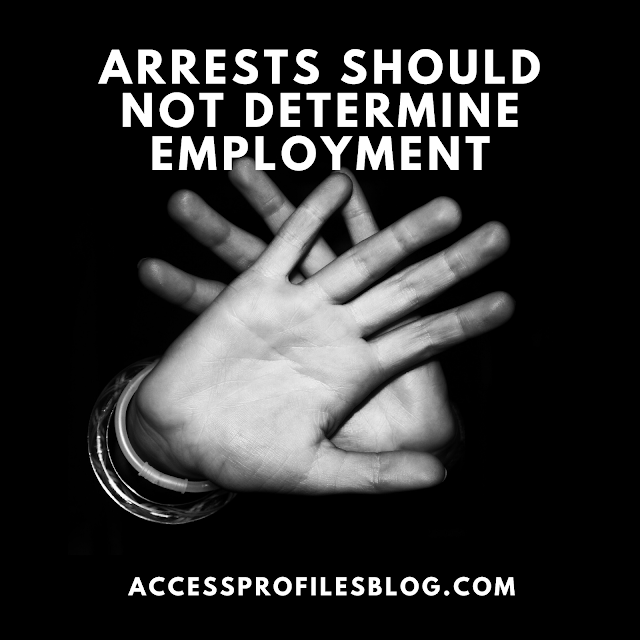
Do “Not Guilty” Cases show up on a Background Check?
There are always questions when it comes to Background Checks! People often wonder ~ What kinds of things they will check? or What is an employer really looking for?
But one of the most frequently asked questions is this ~ What kind of information will be found out during my background check? This is especially true when talking about a criminal background check.
There is understandable angst and confusion when it comes to criminal history checks. Job applicants are often nervous ~ even ones who have no record! They may wonder what it means to their job search to have a record, if all criminal offenses carry the same weight, or even what will happen if mistakes are made?
Each of these questions is legitimate and understandable. And that is why knowing as much as you can about the entire background check process first makes good sense!
We were recently asked to weigh in on a question addressing about criminal background checks ~
"Do cases where a person was found Not Guilty or that were dismissed still show up in a background check"? Here is our response:
“The disposition of cases can, and should, show up on a background check. That includes verdicts of Guilty, Not Guilty, and even verdicts where the cases were simply dismissed (Nolle Prossed). The question then becomes, can an employer still hold a case where you were found Not Guilty against you? In other words, can they refuse to hire you simply because you were charged with a crime? In most cases, the answer is No! Employment laws and guidelines recommend that employers only consider cases where the applicant was proven guilty when making an employment decision. And even then, the crime committed should have direct bearing on whether the applicant can do the job safely and effectively”.
You can find the original question and additional answers on quora.com here!
The reality is that most employers do some kind of criminal background check. During that check they will research court records to find any case(s) where the subject has been listed. The findings will include:
- Cases were no disposition has been listed
- Cases still pending disposition, often labeled as “Active” cases
- Cases with a final disposition of guilty, not guilty, or nolle prosse (dismissed)
While these cases should be considered differently by employers, they will be discovered during any good background check.
The question then becomes, what can and will be done with this information when it comes to the hiring process? There are clear parameters on how employers can consider a criminal record when deciding to hire an applicant. One of the most important of these guidelines is that employers are to use only convictions, not arrests, to make their employment decision.
“Imagine being denied employment simply because of an accusation? That is what it is like for people who lose jobs solely based on a record of arrest. In reality, many arrest records do not indicate what happened after the initial arrest. Do you know if formal charges were ever filed or, if filed, were they eventually dismissed?".
An arrest alone simply does not prove criminal conduct. It is important to keep in mind that excluding someone based on an arrest record that is not job related or necessary based on your business can violate an applicant's Civil Rights.
The bottom line is this ~ No matter what kind of criminal history information may be uncovered during the background check, EEOC guidelines require most employers to only consider convictions when making their employment decision.
Find out more about why it is important to use Convictions, not Arrests, when making a hiring decision in “Why Checking an Applicant’s Criminal Past should be about Convictions, not Arrests”!

While the EEOC guidelines concerning arrests are clear, there are still employers who may fail to follow them. So, what can an applicant do if this happens?
Remember ~ Job Applicants have Rights!
Applicants need to be fully aware of their rights. They should be informed that a background check will be done, what kind of information will be searched, and understand their rights when it comes to the results of the check.
There are also definitive steps that an employer must take if they are considering not hiring someone because of their criminal history. These include notifying the applicant, in writing, if adverse information was found in the background check and giving the applicant the chance to deny or mitigate those findings.
Applicants are also entitled to a copy of their background check report. If the report includes arrests that did not result in a conviction, applicants can question what information was actually used in denying employment.
That is why it is important that anyone looking for a job be prepared for the background check!
Understanding beforehand what a background check entails will help job applicants get their resume “background check ready” and understand what information they should have on hand before they even apply.
Remember, when it comes to an Employment Background Check ~ Knowledge is Power!
For more answers to common Background Check and Job Search questions, check out our Resources and Frequently asked Questions page or Contact Us! We can help not only answer your questions but can get your resume ready for your Job Search!
Authored by


Discover more About Us and our Background Investigation and Job Search Services too!

No comments:
Post a Comment
Thanks for visiting our website. Contact Us! We can answer your questions and offer you a consultation on how we can help You with your Hiring, Business, and Security Needs!
We also invite you to Subscribe. Just leave your email and you will get one new article each month with tips and information focused on You and Your Business!